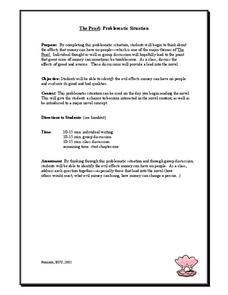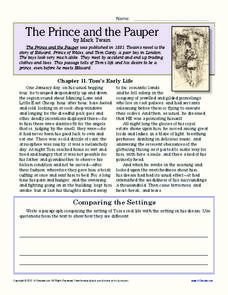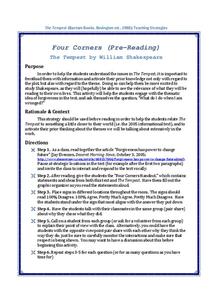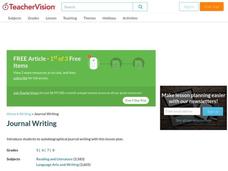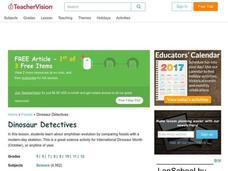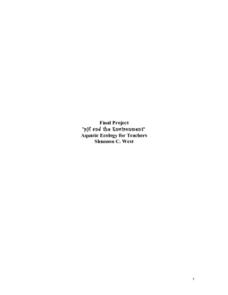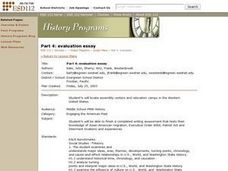Curated OER
The Pearl: Problematic Situation
Is money the root of all evil, or the answer to everyone's dreams? Analyze the role of money in John Steinbeck's The Pearl with a writing prompt where kids imagine that they have won the lottery, and must think about the ways it will...
K12 Reader
The Prince and the Pauper
A passage from Mark Twain's The Prince and the Pauper provides readers with a chance to demonstrate their ability to select evidence that shows the contrasts between the setting of Tom's real life and that of his dream life.
Bantam Books
The Tempest: Four Corners
Forgiveness can be a difficult step to take in any circumstance, but is it more difficult if the offense is more egregious? High schoolers consider the concept of forgiveness before reading William Shakespeare's The Tempest. As kids read...
Social Media Toolbox
Social Media Usage
Is there a difference in the way organizations present news via social media and in print? The third in a series of 16 lessons from The Social Media Toolbox explores news outlets and their delivery methods. Groups follow a story for a...
Kenan Fellows
Unit 2: DNA Analysis
Ever wonder how they solve those mysterious murders in TV crime dramas? The second of four units in a Biotechnology series introduces scholars to the many methods of DNA analysis. Pupils create and run their own gel electrophoresis...
Curated OER
Science Safety Rules
In this chemistry worksheet, students read the paragraphs on the sheet to locate the broken safety rules. Then they underline each one of these and count how many they found.
Curated OER
Where Does Your Water Come From?
Pupils engage in a instructional activity to determine the source of water that is used. They conduct research using a variety of resources. The instructional activity includes information for the teacher to share with the class....
Curated OER
Faces of the Bench
Learners use primary source documents to gather information on justices in the Michigan Supreme Court. They write about the thoughts and experiences of the author. They identify and describe each justice briefly.
Curated OER
Journal Writing
Learners examine the published diaries of Anne Frank, or Zlata Filipovic, to gain an appreciation for journal writing, a form of autobiographical writing in which the writer records personal thoughts, feelings, and experiences. They...
Curated OER
What was Newton's Idea of Science?
Students form logical foundations for analysis of observations. They improve analytic reading abilities through practice. Students investigate the foundations of scientific thought processes and how to apply them.
Curated OER
Digital Picture Books
Second graders create digital picture books reflecting their experiences during the school year on field trips and various classroom activities. Using digital pictures taken during the year, they write captions for each picture and...
Curated OER
Human Rights Role-play
Fifth graders demonstrate an awareness of the needs, rights, and feelings of others through participation in the planning and presentation of a human rights role-play. They express their thoughts on human rights through writing.
Curated OER
A Soldier's Life
Students read and interpret letters about James Vanderhoef included in lesson. Students make connections and note interesting vocabulary used in the letters. Students generate a list of questions about the soldier's life and experiences...
Curated OER
What's On Your Plate?
Students explore the use of sensory details in writing. In this journal writing lesson, students write four journal entries after group discussion about a variety of topics such as their weekend, poverty in the United States, and...
Curated OER
Dinosaur Detectives
Students examine amphibian evolution by comparing fossils with a modern-day skeleton. They experience the scientific thought process of drawing conclusions from limited paleontological data. Student groups align the figures with the...
Curated OER
"pH and the Environment"
Eighth graders experiment and study about acids and bases by becoming involved in direct hands-on learning experiences and then relate those experiences to their own lives. They experience the Ohio River and what can be done to help...
Curated OER
Writing About Estuaries
Students use the internet to research an aspect of interest to them about the Tijuana Estuary. After the unit on the estuary is completed, they reflect on their experiments and thoughts in a paper. They also participate in a field trip...
Curated OER
Writing Directions for Mathematical Activities
Fifth graders reorganize comic strips to have them make sense, complete outline and organize their thoughts into outline form to explain directions,
and use that outline to complete their own directions for geometry activities.
Curated OER
Examining Infiltration Rates of Various Soil Types
Students formulate their own hypothesis, determine which variables are important to test their hypothesis, design an experiment in which they collect data. They utilize instruments and tools to measure, calculate, and organize data.
Curated OER
Childhood Through the Looking-Glass
Learners learn about Lewis Carroll and the vision of childhood he created in Alice in Wonderland, then compare Carroll's Victorian world of childhood with the world of "Innocence and Experience" portrayed by the Romantic poet William Blake.
Curated OER
A Jazz Talk Show
Students analyze and describe music while connecting it to history and culture. They gain experience in theatre arts skills and writing. They use the Internet to do research in order to find out the most about this subject.
Curated OER
Nature Notes
Students spend some time outdoors and record their observations of abiotic conditions, geologic surroundings and living organisms. They reflect and write about the experience of being observant in nature.
Curated OER
Evaluation Essay
Students write an essay about previous studied lessons that is applied to the Japanese American experience. They have to role play being a Caucasian, or Nisei in California at a given time based on what they have studied. What would...
Curated OER
Properties of Liquids
Seventh graders explain that liquids are made up of tiny particles and how these spaces allow other particiles to fit in between larger particles. They then plan and carry out simple scientific experiments.


